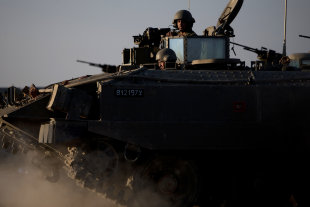WASHINGTON (Reuters) - It's a case of déjà vu in D.C.: some of the same high-profile, high-priced handlers who played supporting roles in the scandal over President Bill Clinton's affair with intern Monica Lewinsky have re-emerged in the sex scandal that has toppled one U.S. national security chief and threatens another.
It is unclear what will be the roles of the expensive legal and crisis-management talent drawn into the uproar over the relationships between former CIA director David Petraeus and Marine General John Allen and two female acquaintances. Neither Republicans nor Democrats in Congress appear to have an appetite for another year-long Monica-style media spectacle.
The latest scandal began with an FBI investigation into cyber-harassment, and indications so far are that ultimately the inquiry will produce no criminal charges.
Nonetheless, both women at the center of attention - Petraeus biographer and former mistress Paula Broadwell and Tampa socialite Jill Kelley, the woman to whom Broadwell is alleged to have sent suspected harassing emails - have turned for advice to veteran Washington lawyers and spin doctors with connections to the Lewinsky brouhaha.
On Monday, a source close to the Kelley family said that two Washington-based players in the Lewinsky scandal, trial lawyer Abbe Lowell and public relations adviser Judy Smith, were working for Kelley.
A day later, a Washington law firm which represented Lewinsky herself confirmed that one of its partners, Robert F. Muse, was representing Broadwell. The three advisors either were unavailable for comment or declined to comment.
It is not known whether Petraeus or Allen, who is the top U.S. military commander in Afghanistan, have retained attorneys.
A complaint by Kelley to the FBI about the harassing emails sparked an investigation that implicated Petraeus in a career-ending affair with Broadwell.
It also embroiled Kelley herself in the uproar over her still-murky relationship with Allen.
Kelley's lawyer, Lowell, who an insider said she had known for years, served as pro-Clinton Democratic Party chief counsel on a House impeachment inquiry. Recently he won a partial acquittal and partial mistrial for John Edwards, a former Democratic U.S. senator and vice presidential candidate who had been indicted for misusing undeclared campaign funds to support his mistress.
During the Clinton sex scandal, Smith, a one-time press aide to President George H.W. Bush, served as Lewinsky's spokeswoman. Smith also represented NFL quarterback Michael Vick, who was charged and convicted in a dogfighting cruelty case.
Smith also is a model for the main character in the ABC-TV drama "Scandal," a prime-time series in which ace spin-doctor Olivia Pope, along with a team of spies and ex-convicts, not only manages to sort out or cover up sex and spy scandals but also carries on a secret affair with a fictional U.S. president.
Muse's senior partner, Jacob Stein, and another prominent criminal lawyer from a different firm, Plato Cacheris, represented Lewinsky personally in a criminal investigation of Clinton by special prosecutor Kenneth Starr and a congressional inquiry which led to Clinton's impeachment by the House of Representatives but subsequent acquittal by the Senate. Muse himself did not represent Lewinsky, according to Cacheris.
Starr and a substantial special prosecution team pursued Clinton during the Lewinsky scandal. Starr turned his evidence over to the Republican-controlled House, which in a nationally televised broadcast impeached Clinton for high crimes and misdemeanors.
But Republicans could not muster the two-thirds majority in the Senate needed to remove Clinton from office. Republicans later were punished at the polls for what many of them conceded was a perceived overzealousness in pursuing Clinton.
CONGRESS WARY OF SPECTACLE
Lewinsky's lawyers were critical in helping her negotiate a legal thicket that included dealing with Starr's criminal investigators and the impeachment inquiry launched by Congress; she testified in both investigations. Lewinsky was also besieged for months by the media; eventually her team arranged decorous interviews with U.S. and British television networks.
Mindful of how the Lewinsky scandal played out, officials familiar with the views of both senior Democrats and Republicans in Congress say that congressional leaders are keen to avoid turning the scandal into a public extravaganza, even though there remain many unanswered questions.
If there are no public congressional hearings or a criminal prosecution, it is unclear what Broadwell's and Kelley's legal and public relations teams would do, apart from trying to manage news coverage and the hordes of paparazzi and TV cameramen now outside their clients' homes.
Lewinsky's lawyer, Cacheris, told Reuters that from what he could see, at this point Broadwell and Kelley do not know if there will be any charges against them. "These people are getting lawyers to ensure there is no criminal case," he added.
But Eric Dezenhall, a Washington crisis management expert, said some clients did not understand that there was a limit to how much even the most skilled lawyer and public relations specialist could do.
"You have to be very selective in the cases you take because you're going to end up with some very disgruntled clients," Dezenhall said.
(Editing by Warren Strobel and Paul Simao)











